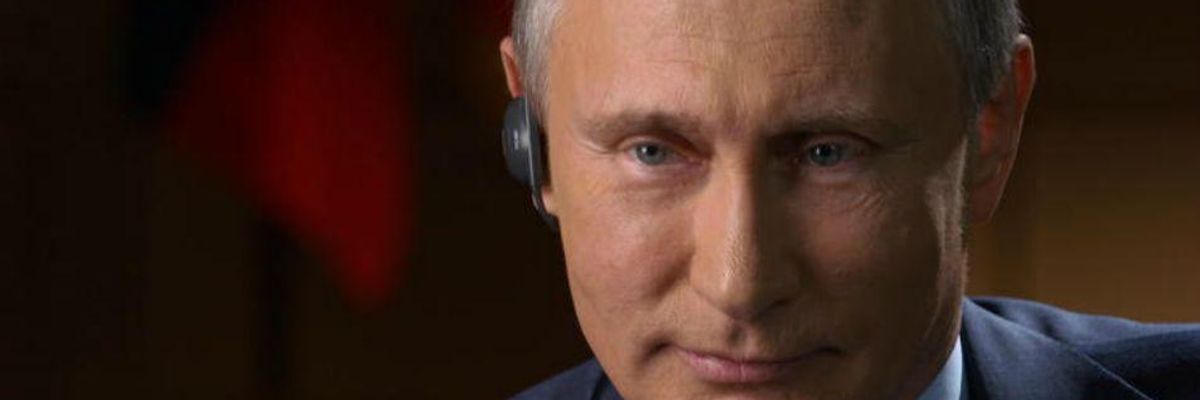With major speeches to be delivered by both U.S. President Barack Obama and Russian President Vladimir Putin before the United Nations General Assembly on Monday, all eyes are on the two leaders as the content of their remarks--and an expected face-to-face meeting--could have deep implications for the ongoing civil war in Syria and the wider military campaign against the Islamic State (ISIS) that continues across the Middle East region.
In a televised interview with Putin that aired Sunday night on 60 Minutes, the Russian leader made his nation's position clear on why the government of Syria's President Bashar al-Assad must be maintained as it battles the tide of ISIS and other armed militias, some of which have been backed by the United States.
Asked by CBS News' Charlie Rose whether part of Russia's plan was to "rescue" Assad, Putin acknowledged this was true, but pointed to other destabilized countries in the region that fell into chaos after their governments were forcibly removed from power by the U.S. military and their NATO allies.
"Yes, you're right," Putin said of his support for Damascus. "We support the legitimate government of Syria. And it's my deep belief that any actions to the contrary in order to destroy the legitimate government will create a situation which you can witness now in the other countries of the region or in other regions, for instance in Libya where all the state institutions are disintegrated. We see a similar situation in Iraq. And there is no other solution to the Syrian crisis than strengthening the effective government structures and rendering them help in fighting terrorism. But, at the same time, urging them to engage in positive dialogue with the rational opposition and conduct reform."
Asked about those who hold the position that 'Assad must go' before a diplomatic solution can be forged in Syria, Putin said he had this message for the U.S. State Department and others who hold that view: "It's only the Syrian people who are entitled to decide who should govern their country and how."
Asked to account for the human rights abuses and alleged war atrocities committed by the Assad regime as he wages a military campaign against those forces opposed to him, Putin would not take responsibility for those charges, but said, "Well, tell me, what do you think about those who support the opposition and mainly the terrorist organizations only in order to oust Assad without thinking about what will happen to the country after all the government institutions have been demolished? Today, you have repeatedly said that Assad is fighting against his own population. But look at those who are in control of 60 percent of the territory in Syria. It's controlled by either ISIS or by others."
Putin said that though there are military personnel and trainers on the ground in Syria, he has no immediate plans for any Russian troops to be engaged in combat operations there. "But we are," he said, "considering intensifying our work with both President Assad and with our partners in other countries."
With that statement in mind, the Iraqi government announced over the weekend that it will begin sharing intelligence regarding ISIS with the Assad government as part of a new agreement that also includes Iran and Russia. As Reutersreports:
A statement from the Iraqi military's joint operations command on Saturday said the cooperation had come "with increased Russian concern about the presence of thousands of terrorists from Russia undertaking criminal acts with Daesh (Islamic State)."
The move could give Moscow more sway in the Middle East. It has stepped up its military involvement in Syria in recent weeks while pressing for Damascus to be included in international efforts to fight Islamic State, a demand Washington rejects.
Watch Putin's complete interview with 60 Minutes:

